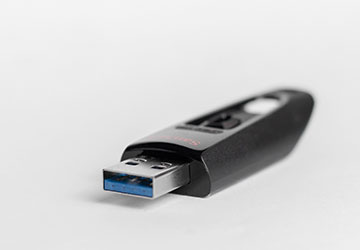Negligence Claims against Auditors – Many a Slip
Background
The Times revealed in an article last month that, according to a report from the Audit Reform Lab, a think tank at the University of Sheffield, only a quarter of the 250 largest companies listed on the London Stock Exchange to become insolvent between 2010 and 2022 had a “going concern” warning included by their auditors in what would turn out to be their final set of accounts. Of those companies 38 also declared a dividend in those accounts.
Professor Adam Leaver, director of the Audit Reform Lab, has called on the next government to finally bring through the promised “far-reaching reforms” of the audit industry.
“The UK audit sector is plagued by poor standards, a toothless regulator, conflicts of interests and weak sanctions for malpractice” Leaver said. “Auditors are failing to show independent judgment or professional scepticism; both are non-negotiable features of their job. Reform has been long promised and is long overdue.” He also suggests that auditors are currently incentivised to maintain good client relationships, rather than applying the principles of professional scepticism and prudence.
Among the companies to have collapsed since 2010 are Thomas Cook, the travel group; BHS, the department store chain; Intu, the shopping mall owner; and Carillion, the construction contractor.
Implications
Liquidators and administrators in such cases will always look closely at the involvement of the company’s previous auditors and at signs that their past conduct may have been a cause of the losses suffered by creditors. The prospect of a successful claim being underwritten by often sizeable insurance policies will be an added reason to investigate auditors’ culpability, particularly if the claim is likely to attract litigation funding and adverse costs insurance, so that legal costs do not drain whatever limited assets are left in the insolvent estate.
Against this background it is perhaps surprising that relatively few claims for professional negligence against auditors find their way to the English courts.
Many potential claims will of course settle at an early stage to avoid the risk of adverse publicity. But a more compelling explanation for the infrequency of claims is the legal complexity of establishing that poor audit practice has crossed the boundary into negligence and, if it has, that the negligence in question has been the cause of the losses suffered.
Establishing culpable behaviour and resulting loss are of course requirements of any successful professional negligence claim. But some of the features of audit negligence claims give ample opportunity for well-advised defendants and insurers to defeat them, or least considerably reduce the claimed liability.
Here are some of the common battlegrounds in audit negligence claims:
Breach of duty
Auditors owe a duty (under Parts 15 and 16 of the Companies Act 2006) to exercise reasonable skill and care in carrying out their core statutory function, namely to report on whether the accounts give a true and fair view of the state of affairs of the company at the end of its financial year and of its profit or loss for that financial year. Further obligations will often be implied (if not expressly included in an engagement letter) from that overarching duty, including to conduct the audits in accordance with the International Standards on Auditing (UK and Ireland) and to plan the audits so that the auditors have a reasonable expectation of discovering material misstatements.
Auditors are allowed some latitude, and they can, and must, exercise professional judgment. But they must also bring to bear an appropriate degree of professional scepticism – the higher the risk of a material misstatement the greater the degree of scepticism required.
Difficult issues can arise where the claimant is said to have concealed relevant information from the auditors. Concealment may provide fertile ground for a defence based on lack of causation or contributory negligence (see below) or as to the scope of the auditors’ duties.
It may be argued, for example, that the auditors’ duties did not extend to protecting the company from losses caused by the concealment, or by the perpetuation of wrongdoing by the company’s own management. But it will be no answer to the claim if the exercise of professional scepticism could have detected the concealment.
Recoverable heads of loss
Dividends
Audit negligence claims often include a claim for dividends paid out, when they would not have been paid had the audited accounts revealed the company’s true financial position. There is authority going back to 1887 confirming that such claims are good in law, provided that the relevant factual and counterfactual matters can be made out.
A common point of contention is whether the claimant must also establish that the dividend payments were made unlawfully, because the financial position of the company at the time meant that the dividends were paid from capital (and not from profit). Put another way, where the dividends could legally have been paid from profit on a true and fair view of the company’s financial position has the company suffered a loss properly recoverable from its auditors?
The point is not free from doubt, but there is a strong argument for saying that money paid out to shareholders is a loss to the company in either situation. Damages for audit negligence do not generally depend on proving that payments giving rises to losses were unlawful (it is not, for example, a pre-requisite for damages for trading losses, considered below).
Trading losses
The question whether auditors can be liable for trading or similar losses suffered in the period after the company would, if the audit had been carried out properly, have been closed down (or changed its ways under new management) was answered in favour of the claimant by the Court of Appeal in AssetCo v Grant Thornton [2020] EWCA Civ 1151.
The gist of AssetCo was that the recoverability of trading losses depends on the closeness of the connection between, on the one hand, the type of losses and the business activity causing the losses, and on the other the nature of the breach of the auditor’s duties.
In AssetCo the principal claim was allowed because (i) the breaches of audit duty were directly connected to loss-generating contracts which were being dishonestly misrepresented by the directors; and (ii) the losses for which damages were sought also related to those contracts.
While it is now strongly arguable that trading loses are a recognised and recoverable head of loss in audit negligence claims, proving that the losses were caused by the negligence requires careful work by the claimant and its factual and expert witnesses. Crucially, success will depend on establishing that, in the counterfactual where the true position was known, the claimant would have stopped trading earlier than it did and so would have avoided the losses actually suffered.
This will frequently depend on the likely reaction of the company’s lenders had an audit revealed the true financial position. Would they have frozen the company’s lending facilities, and if so when? How does that compare with how the lenders did in fact react when the true position eventually came to light?
These are complicated factual and causation issues, and ones where expert evidence from restructuring or banking experts, who can anticipate the counterfactuals and help ensure that relevant witness and documentary evidence is identified and preserved, will often be needed.
Contributory negligence
The case law in this area shows that deductions for contributory negligence are routinely made from damages in audit negligence cases, even where the negligence or misconduct of the company’s management is the very thing that should have been brought to light by proper auditing. The legal theory is that the negligence/misconduct of senior employees of the claimant company is to be attributed to the company in the usual way.
Deductions for contributory negligence are typically in the range of 20-50% (and as AssetCo shows, the court may evaluate the appropriate deduction separately in relation to different heads of loss).
However, where there is evidence of deliberate concealment of the true facts at board level, higher deductions than 50% may well be possible, particularly if there are no non-executive directors who are able or willing to give evidence to confirm their ignorance of the behaviour of the rest of the board.
Where there is such egregious behaviour on the part of the board there is also a risk that the extreme conduct will be found to have broken the chain of causation with the auditors’ conduct, and should be regarded as the sole cause of the loss. Establishing factual causation depends on proving that the board would have acted differently if the auditors had revealed the true position – if they would have carried on regardless the auditors’ breach of duty is not the cause of the loss.
There is of course a paradox in deductions being made for contributory negligence when the negligence or misconduct of the company’s management is the very thing that should have been brought to light by proper auditing. The net result is that the worse the management misconduct, the worse the auditors’ negligence for failing to expose it but, at the same time, the higher the deduction for contributory negligence.
The irony of this outcome is that the creditors of the company, for whose benefit actions of this type are in reality being brought, end up disadvantaged by the contributory negligence deduction from the damages awarded.
Other common law jurisdictions have dealt with the point differently and have decided that there should be no attribution to a company of the fraudulent conduct of its directors for the purpose of contributory fault in claims against auditors who ought to have detected the fraud.
However, on the current state of English law, the dishonesty of management is attributed to the company for the purpose of contributory fault.
Conclusion
Any sizeable professional negligence claim against auditors is likely to be vigorously defended by the firm (or more likely its insurers), if only in the expectation that the headline damages can be significantly reduced.
To succeed in the claim the company (or its appointed insolvency practitioners) will need the benefit of experienced and specialist professional advisers. It may also need assistance from litigation funders with the experience and skills to assess the strength of the claim and its true value, and then the ability to stick with the claim through what is likely to be a challenging, cost intensive and possibly lengthy process.
LCM has extensive experience in the financing of audit negligence litigation around the globe, including the funding of the claim brought against the auditors of Carillion which concluded in 2023.




